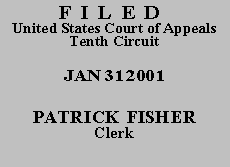

| ALONZO ECHOLS,
Plaintiff-Appellant, v. TODAY'S STAFFING, Defendant, KANSAS DEPARTMENT OF HUMAN RESOURCES; FORREST T. JONES, INC., Defendants-Appellees. |
|
Plaintiff-appellant Alonzo Echols, proceeding pro se, appeals from the district court's order dismissing his claims against defendants-appellees Kansas Department of Human Resources and Forrest T. Jones, Inc. He has not filed a notice of appeal from the order dismissing his claims against defendant Today's Staffing. Therefore, we are without jurisdiction to consider any challenge to that order. See Laurino v. Tate, 220 F.3d 1213, 1219 (10th Cir. 2000) (absent amended notice of appeal, appellate court is without jurisdiction over order amended after original notice of appeal filed); Fed. R. App. P. 4(a)(2), 4(a)(4)(B)(ii).
In this lawsuit, plaintiff alleged that he was wrongfully denied unemployment compensation and that he was sexually harassed on a job and retaliated against for rejecting the harassing actions. The district court dismissed plaintiff's claims, in part, because he failed to respond to the motions to dismiss. In addition, the court determined that plaintiff had failed to establish federal jurisdiction over his claims against the Kansas Department of Human Resources. Similarly, the district court dismissed the claims against Forrest T. Jones, Inc. for lack of federal jurisdiction because plaintiff failed to exhaust his administrative remedies.
"Whether the district court had subject matter jurisdiction is a legal question which we review de novo." Johnson v. Rodrigues (Orozco), 226 F.3d 1103, 1107 (10th Cir. 2000). We have carefully reviewed the record on appeal as well as the briefs submitted by the parties. Applying the standards set out above, we affirm the order of dismissal for substantially the same reasons as those stated in the district court's November 16, 1999 order.
The judgment of the United States District Court for the District of Kansas is AFFIRMED. The mandate shall issue forthwith.
Entered for the Court
Circuit Judge
*. This order and judgment is not binding precedent, except under the doctrines of law of the case, res judicata, and collateral estoppel. The court generally disfavors the citation of orders and judgments; nevertheless, an order and judgment may be cited under the terms and conditions of 10th Cir. R. 36.3.